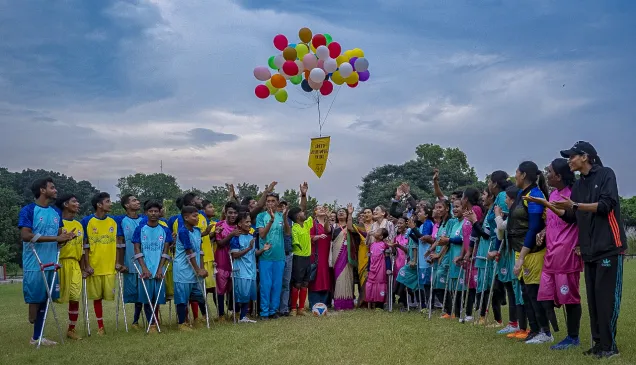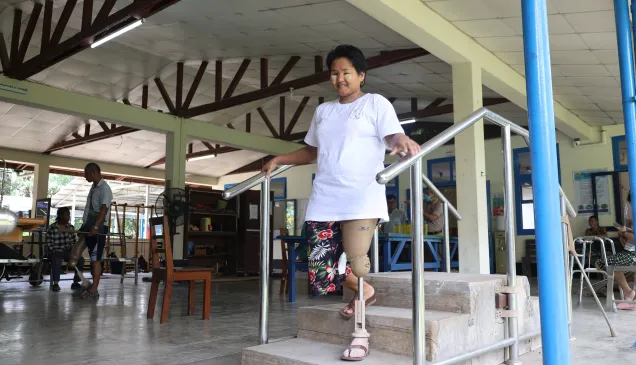An inside look: Three months in northern Rakhine
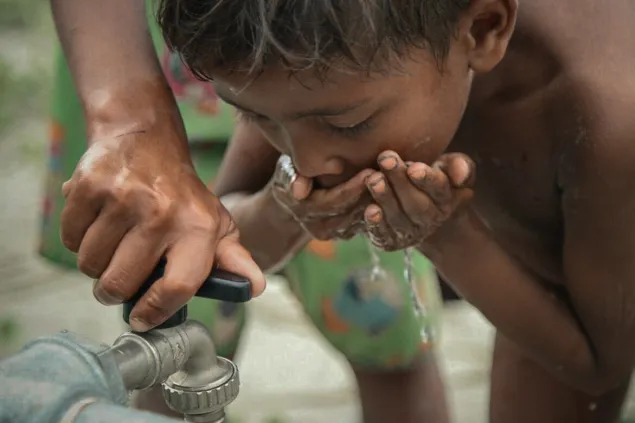
Clean drinking water is a priority in Rakhine. Communities displaced by the recent violence have been digging the ground to find water, using nearby ponds, and seawater for cooking and washing. As part of our emergency response, we have provided nearly 500,000 litres of water since the crisis began, while also teaching communities about safe hygiene practices so they can lead safer and healthier lives.
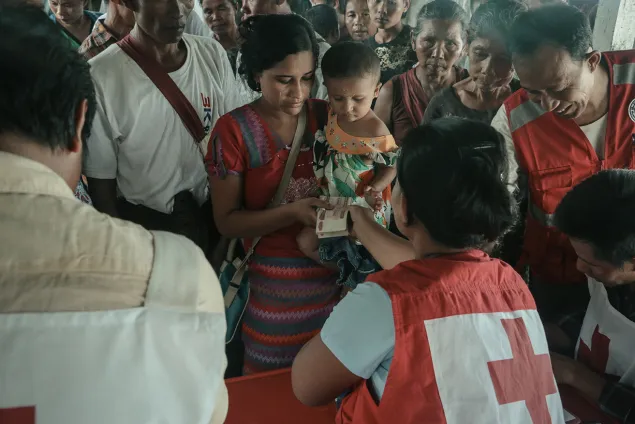
A little to go a long way
The Red Cross is helping all communities affected by the violence in Rakhine. And for people with access to markets, the Red Cross delivered unrestricted cash grants to more than 15,000 people as they returned to their homes after being forced to temporarily relocate.
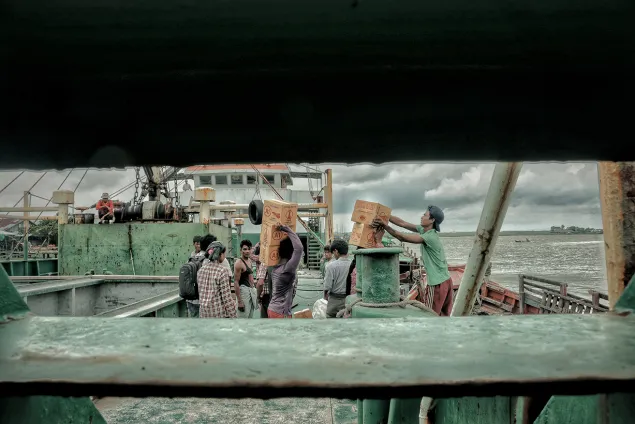
The pipeline
Getting emergency aid to people in northern Rakhine starts with boxes in a warehouse that are moved onto a truck, and then a boat. In the first few weeks of our response, 400 tonnes of goods were shipped from Yangon to Maungdaw in northern Rakhine.
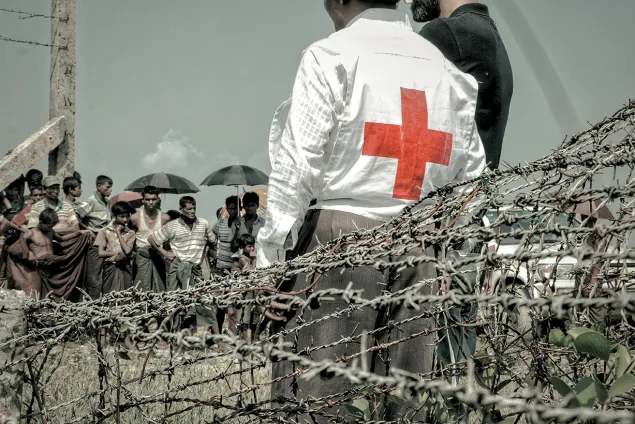
Fear and uncertainty
Fear and uncertainty is pervasive in the northern areas of Buthidaung, Maungdaw and Rathedaung townships. With limited movement, many people cannot access schools, farm fields, or the health care they need. The situation requires both humanitarian assistance and a long-term investment, along with the need for law and order, peace and stability within communities.
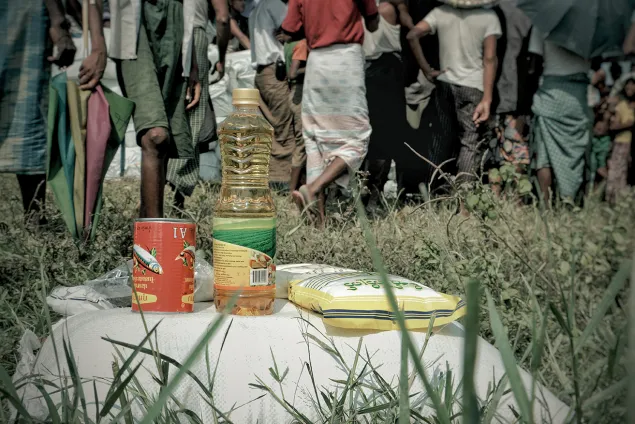
What does 100 kg of food look like?
“People eat very little; mainly rice to survive,” explained one ICRC delegate for economic security. In three months, over 150,000 people have been helped by the Red Cross with 100 kg packages of food so they can sustain as the situation stabilizes.
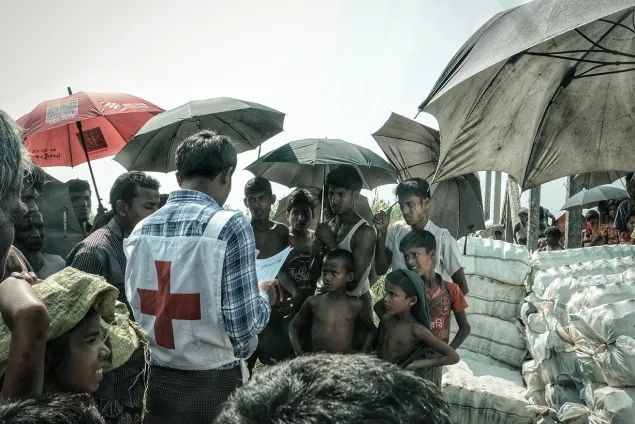
Progress: How did we get to 180,000?
One family, one village at a time, covering nearly 140 towns in total, across northern Rakhine. In one day alone, Red Cross teams drove eight hours, spent three hours providing food for 1,300 households in two locations.
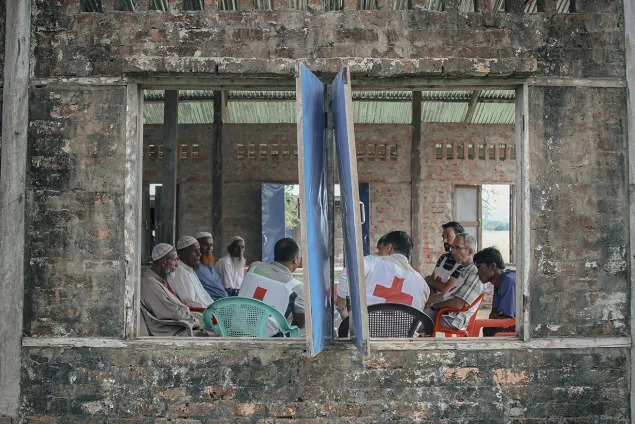
Information is aid
“While the ICRC cannot provide the physical security and freedom communities want, we can provide an opportunity for people affected by violence to be heard, to share their fears and concerns, and to have a say in the relief programs we are developing.” – Fabrizio Carboni, the ICRC head of delegation for Myanmar.
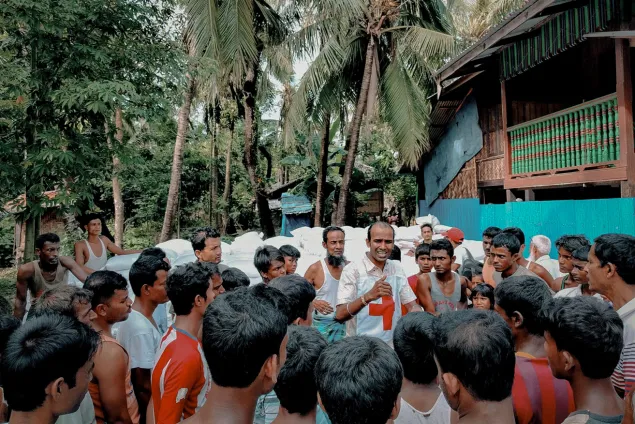
Impartiality
People in communities listen to us silently, closely. They understand the Red Cross is helping everyone regardless of ethnicity or religion. “In Rakhine, I was accepted by everyone, but it is not easy,” explains Myint Naing, an ICRC field delegate. “It’s important people trust me. I tell them, ‘I am Hindu, but forget my religion. I am here to help you.’”
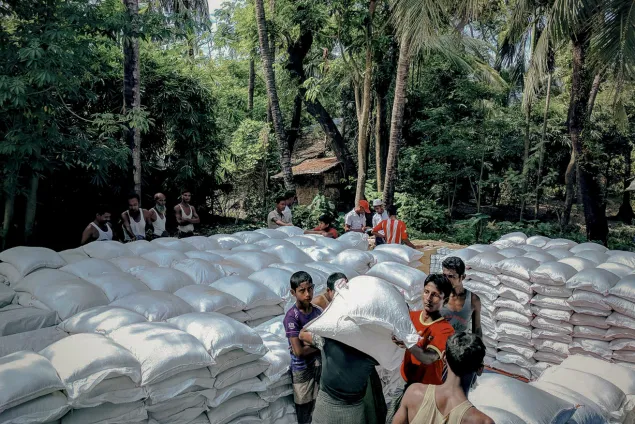
Vulnerability
“Over the past few months, people always tell us how they appreciate that we bring food and other items to everyone. Because at this stage, anyone who remains, is vulnerable. And our way of helping all members in a community based on their needs, does not create tension inside the village.” – Guilio Doronzo, ICRC delegate for economic security
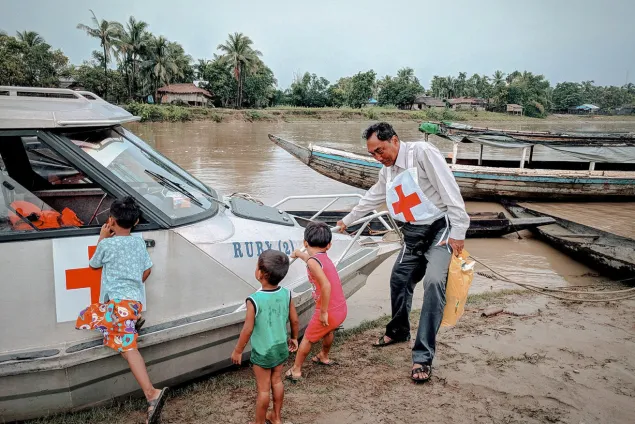
A little help from our friends
In all of the communities which we visit, people, big or small, are giving the Red Cross a helping hand to get the job done.
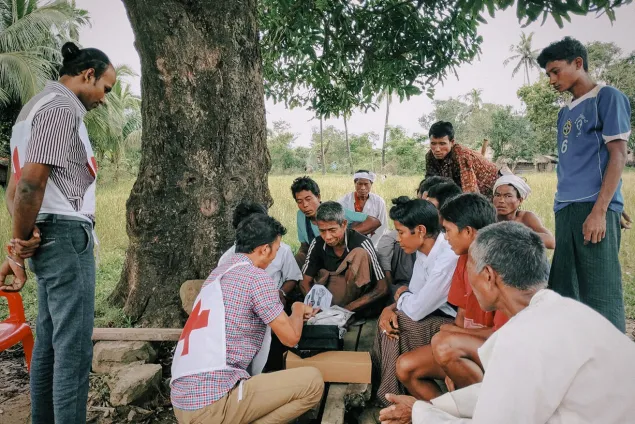
As much as possible
“There are many needs in very remote areas, hours away from any townships. We need to support these people as much as possible. And communities appreciate that the Red Cross makes an effort to come to these villages. Many say that we are the first ones to come and listen to the difficulties that they face.” – Makoto Abe, an ICRC staff working in Rakhine since the outbreak of the violence
It has been more than three months since violence broke out in northern Rakhine. During which time, the Red Cross Movement has been leading a dedicated humanitarian response, continuing to help 180,000 people in Buthidaung, Maungdaw and Rathedaung townships.
Travelling for hours by cars, boats and helicopters, or on foot, the Red Cross has around 200 staff that are helping reach remote communities. Some of the most vulnerable ones were left behind as over 600,000 people fled to Bangladesh.
"All communities in Rakhine continue to suffer in one way or another from the outbreak of violence," explains Fabrizio Carboni, ICRC head of delegation in Myanmar. "And ultimately, the solution to the crisis in Rakhine is not only a humanitarian one; it is a political one that will require long-term investment to rebuild peace and stability among the people."
The situation is now relatively stable, but it remains tense. People are still fleeing, and incidents of violence continue being reported. In some areas, not affected by the violence, our teams describe a sense of calm and normalcy, and people tell us that they can move safely; women are working at home, while the men are out selling fish.
In others, there is distinct tension, and movement is completely restricted so children cannot attend school. People who are sick cannot reach health clinics. Homes are crumbling, or there is nothing left where homes were burnt to the ground. As winter settles in, people are asking us for blankets.
Three months on, we are still reaching new communities in some of the most remote, mountainous areas of Myanmar, and help is badly needed. The need for humanitarian assistance remains very high. The Red Cross Movement is finalizing current commitments for the 2017 emergency assistance operation, yet despite this, Rakhine will remain a sensitive area, with significant potential for further violence to reignite.

